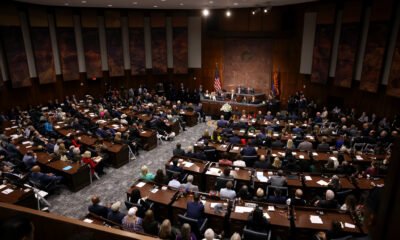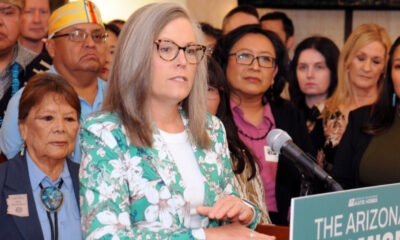Arizona Department of Education
TAMRA FARAH: Arizona’s ESA Handbook Signals a Shift Toward Innovative Strategies and Leadership

By Tamra Farah |
Arizona’s Empowerment Scholarship Account (ESA) program, initiated in 2011, allows families to customize their children’s education using state funds. Covering private school tuition, tutoring, and therapy costs, the program typically allocates $7,000 to $8,000 per student for the 2025-2026 academic year.
Despite serving over 93,000 students, many families remain without access due to bureaucratic hurdles. Critics assert that the newly approved 2025-26 ESA Parent Handbook, rather than facilitating access, has imposed restrictive guidelines that further complicate the approval process.
Examining the program reveals a pressing need for reform. Streamlining operations and adopting effective practices from other states could better serve families and expand educational opportunities.
ESA Application Process
The ESA program is open to any Arizona child from kindergarten through 12th grade, including preschoolers with disabilities, as stated in the 2025-26 ESA Parent Handbook and A.R.S. §15-240. Families apply through the Arizona Department of Education’s (ADE) online portal, providing proof of residency and necessary documentation for students with disabilities.
Typically, approvals take about 30 days. Approved families must sign a contract to utilize funds for educational expenses, foregoing public school enrollment. Funds are allocated quarterly through ClassWallet, which mandates compliance with core subjects and requires receipt submission. Non-compliance can lead to account suspension, maintaining a balance of flexibility and accountability.
ClassWallet and Financial Management
ClassWallet simplifies fund management via the ESA Applicant Portal. Parents can track balances and make transactions through four options: the Marketplace for pre-approved items, Pay Vendor for direct payments to providers, the Debit Card requiring receipt validation, and Reimbursement for out-of-pocket expenses after review.
While Marketplace purchases facilitate routine expenses, those outside this category necessitate manual review per the handbook, causing delays for many families.
Manual Review Staffing Strain
The handbook’s requirement for manual review of non-Marketplace items strains administrative resources. Each item, including custom curricula and tutoring from unregistered providers, must be verified for educational relevance, demanding specific documentation. With a student population exceeding 93,000, this process could result in up to 186,000 reviews annually, consuming significant staff hours.
According to a 2024 Heritage Foundation report, these reviews have led to delays for 77% of parents, perpetuating perceptions of inefficiency within the system.
The 2025-26 Handbook Controversy
The recent approval of the handbook by the Arizona State Board of Education (SBE) sparked debate over compliance with state law. Critics, including parent Angela Faber, fear that the rigorous documentation required for disability-related expenses infringes upon parents’ rights under A.R.S. §15-2402(B)(4).
Political discourse surrounding the issue has intensified, with some Republican lawmakers arguing that the handbook’s stringent guidelines contravene previous legislative recommendations. Despite the controversies, the ADE stands by its compliance with existing state regulations, allowing a 30-day appeal for denied expenses.
Lessons from Other States
Broader Marketplace offerings could significantly decrease the demand for manual reviews, addressing some inefficiencies seen in the current handbook. Incorporating machine learning for routine approvals, similar to systems in Florida and Tennessee, could streamline processing. Reintroducing debit cards with restrictions and implementing risk-based audits may further reduce the workload. Enhancing parental education through tutorials is critical to minimizing errors and alleviating administrative pressures.
Potential Leadership Change: Horne vs. Yee
Given the ongoing concerns over the ESA handbook, Superintendent Tom Horne may face Treasurer Kimberly Yee in the upcoming primary for the Arizona Superintendent of Public Instruction. Horne has focused on educational streamlining, while Yee has prioritized government transparency and financial literacy initiatives. The outcome of this race could influence the future direction of the ESA program.
Conclusion: Strengthening a National Model
The ESA program’s model offers valuable flexibility for numerous students, yet the administrative obstacles highlighted by the 2025-26 handbook require urgent attention. By enhancing transparency and learning from advancements in other states, Arizona can refine operations while ensuring accountability.
Tamra Farah leads AmericanStrategies.org. With two decades in public policy and journalism, she advocates for individual liberty and limited government. She has collaborated with various candidates and organizations and makes frequent media appearances.


















